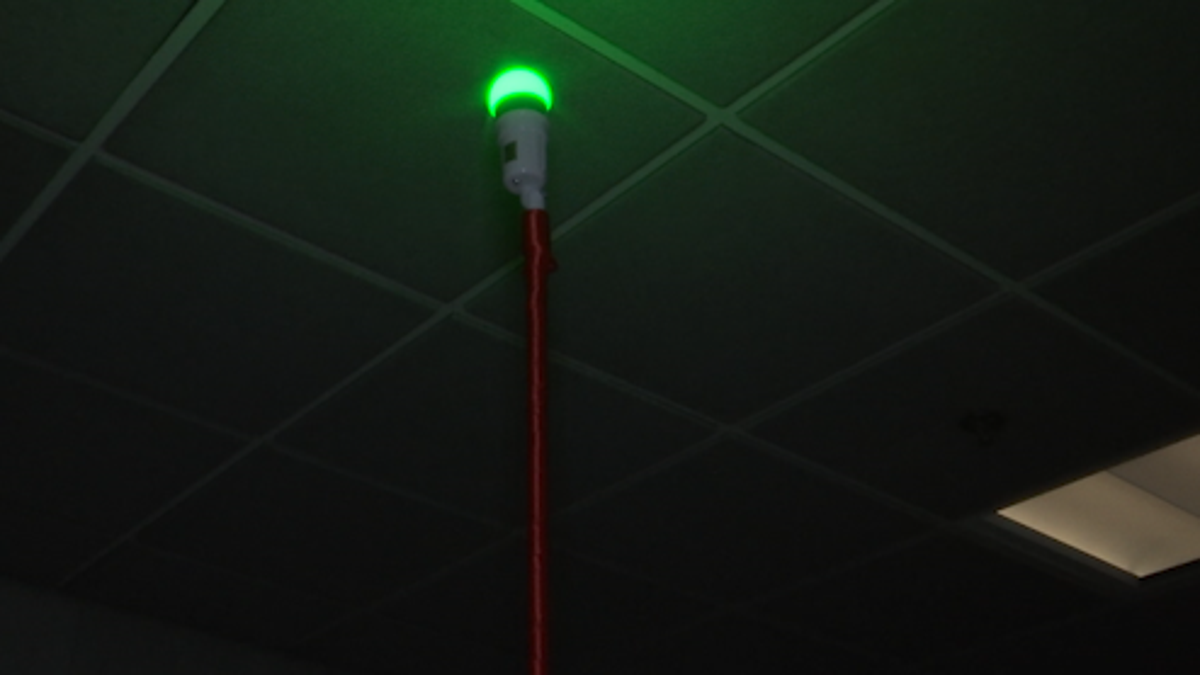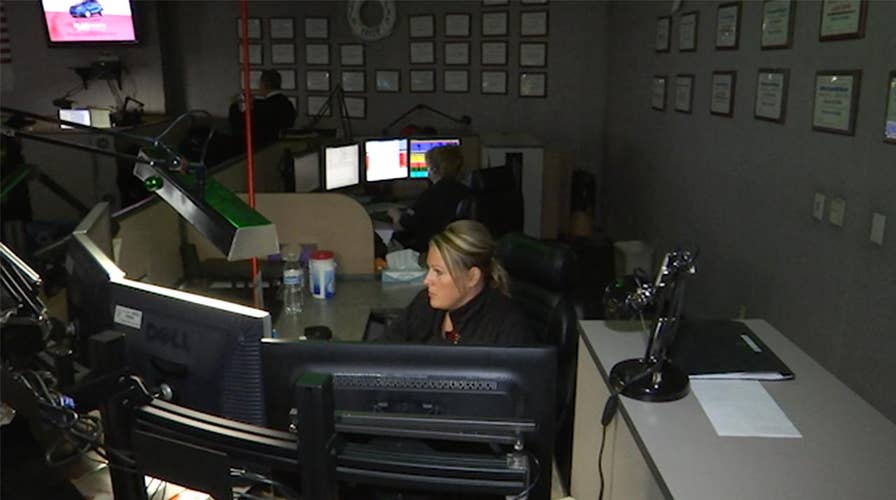Las Vegas Fire and Rescue employs nurses to field 911 calls
New program lets nurses take emergency calls to offer more support to overburdened fire department
Nurses in Las Vegas are stepping out of the hospital room and into the fire and rescue dispatch center. In a pilot program that was started in July, eight nurses are now fielding calls from would-be patients in Las Vegas who don’t have a serious medical emergency.
“Here, you ask them a bunch of questions to figure out if this is life or death, what resources can we use to you and where we can get you the best help,” Katie Chapp, one of the on-call nurses, told Fox News.
With tight budgets and limited staff, the program comes as a much-needed relief for overburdened departments that may not want to deploy an ambulance or EMTs in situations that don’t necessarily require it.
WEST NILE DEATH TOLL HITS 7 IN LA COUNTY, OFFICIALS SAY

A green bulb lights up above nurses at their stations indicating they are ready to take a call. Callers that are deemed non-essential and not in life threatening situations are transferred for the nurses to take through a color-coded computer system. The nurses then provide guidance and advice on how best to go about handling a bevy of different situations.
For example, Chapp described a call in which a patient had a medical condition that needed treatment, but didn’t necessarily require a full out response from a team at dispatch.
“I had a patient that called in and she was just worried about a condition that she has, wasn’t life or death, but it needed to be seen. She didn’t want to take an ambulance, she didn’t have the means or money for that…she was very happy with our care," Chapp said.
One of the ways nurses bypass deploying ambulance rides is by requesting Lyft drivers for callers. Instead of the lights and sirens coming to assist a patient where costs can add up, the nurses call rideshare companies to take patients to the hospital. The method significantly reduces the patient's medical bills.
The nurses then follow up with the drivers to make sure everything was handled appropriately.
The program serves as a way to address patients with non-emergency medical conditions who have come to rely too heavily on the 911 system for receiving their health care.
COFFEE SOLD IN CALIFORNIA COULD CARRY CANCER WARNING LABELS
“Communities have come to depend on the 911 system for access to health care because it’s immediate and it’s immediately free," Sarah McCrea, assistant fire chief of Las Vegas Fire and Rescue, told Fox News. "We don’t ask for any sort of insurance or payment at time of arrival of when the phone is picked up by a call taker, we just answer the phone and we send somebody out and we’ll send you to the hospital.”
McCrea, who was instrumental in starting the program, said call volumes are increasing five-to-ten percent each year.
There are similar programs already established in cities like Los Angeles, Texas and New York.
Chapp hopes their program does well as a new way to offset the division of labor and focus resources where they are truly needed.
“Especially seeing it from the other side from working in the ER, from people who take the ambulance who don’t necessarily need the ambulance that actually ties up the crews because it’s not a life or death, so they have to sit there and wait, when they could be out on a call to go save somebody,” Chapp said.

